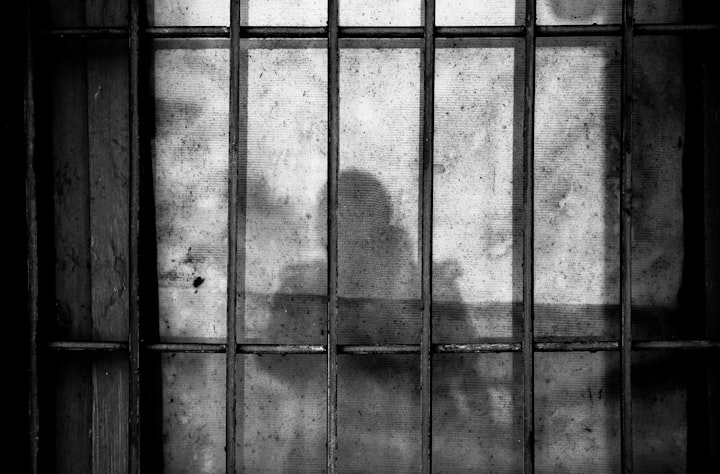
Sometimes, in the face of failure, it’s easy for the embarrassment to sting. If only the ground could open up and swallow me whole, it’s easy to think. Sometimes, it’s darker than just embarrassment: getting on the wrong side of gangs, or the banks, can have you scrabbling desperately for an exit. Or perhaps you just want a fresh start — leaving behind those old mistakes and regrets.
Well, as it’s currently January — let’s see how you could disappear completely in the next 6 months.
February. Get a (financial) grip.
Collate all of your bills, direct debits and debt. Using an excel document, map out precisely what comes out of your bank account and when.
In debt that you can’t pay back yet? If you attempt to disappear with unpaid debts on your head, prepare to be living life on hard mode. The good news is — as you’ll soon be disappearing — you suddenly have an abundance of things you no longer need, that can be sold off for some quick cash. PCs, TVs, headphones — turn them into quick cash either through highstreet pawn brokers, or sites like Gumtree. Selling a house will take longe, but can be done anonymously through companies such as Lukinski, in off-market conditions.
However, if you’re going to the effort of disappearing — you may as well make a proper job of it. Calculate how long you’ll need to pay off the rest of your debt and/or save up a few grand in cash. If you have anything in your current or savings accounts, start siphoning off cash.
This is your new timeline.
March-April. Start detaching.
With a rough timeline in place, now’s the time to start detaching yourself from friends and family. A sudden disappearance would make them far more suspicious: if you’ve few family or friends, this places you at an advantage.
Similarly, this chunk of the plan demands total sobriety: getting drunk risks you snitching on yourself before you’ve even started. A solid cardio and fitness plan also helps your chances of getting yourself out of trouble, should the need arise in the future.
As you look forward towards your new life, start discreetly researching where you’ll relocate to, and what sort of employment to prepare for. Spend your time building a new skillset, tailored toward self-sufficiency in your new life.
If you’re renting, put your notice in with your landlord, letting them know you’re leaving by July. If you’re in full-time employment, let them know you’re leaving, too. (If your notice period is over three months or more, tell them before March!)
May. Choose a new life.
You’re a few months in; your family, friends and colleagues are distant memories, and you’re more certain than ever that this is the right choice. If any doubts have arisen at all —
congratulations, you’ve still got the flexibility to postpone the plan by another month or so. Make sure this is absolutely what you want to do, as this is the point of no return.
Now, you can start pulling together the strands of your plan. First off: change your name. If you’ve gone the debt-avoidance route — or just fancy a more thorough form of disappearance — you can’t turn to the normal routes of deed poll or statutory declaration.
If you’re seeking the unofficial route, the simplest way of changing your name, now, becomes a process of identity fraud. Stolen or fraudulent documentation — available for purchase through various deep web marketplaces — will need to be purchased with bitcoin or monero. After purchase (and making sure all of your new documents are legitimate-seeming!), lock & load the process of closing all of your bank accounts — but don’t pull the trigger just yet.
Depending on your personal ‘next steps’, purchase or arrange your upcoming accommodation. Make sure to operate entirely under your new name (or, for more security, operate under an alias). Use only cash. If you need to travel anywhere, move via public transport.
Change your physical appearance and wardrobe; get used to this new ‘you’.
June. Wipe (almost) everything.
Destroy all of your old documentation — passports, IDs, cards, cheque books. This won’t make a huge difference, legally speaking — but it will help you in psychologically leaving your past life behind.
Online, not only are all your social media profiles a glaring beacon for location history, but your IP address also links you to your physical location — which is accessible by police, upon request.
Your social media also does a fantastic job of making your (old) name and physical features accessible to almost everyone. Scrub everything: hopefully you’ve used a VPN and the Tor browser to research all of your nefarious scheming, otherwise you’re going to have a far harder time removing your online footprint. Here’s a complete guide to wiping as much of your Google data as possible. Follow similar guidelines for your Facebook, Instagram, Linkedin, etc.
Wipe and destroy the hard drives of your phone, PC, and laptop. Strong magnets or fire do a decent job. Replace your phone with a prepaid, ‘dumb’ phone, on a pay as you go contract.
Withdraw all leftover cash from your bank account(s) and close every single account. This applies to your bills and subscriptions, too.
July. Move.
Moving abroad is far riskier than staying domestic, depending on the reason for your moving. If you feel your life is in danger from criminal gangs, then abroad may be your best bet — geographical distance could be your only form of protection. In this case — assuming you, like me, are UK-based, then movement through the Eurotunnel has a lower chance of getting you busted at the first hurdle. The summer months are busier, and you face better chances of blending in with the crowd.
From there, you’re free to travel throughout Europe: keep the lowest profile possible.
However, if the government, or banks, are your pursuer — then abroad may not be worth the risk. Instead, look at off-grid or low-profile living arrangements. Renting under your new name may seem safe, but most landlords will demand a direct debit, or at least online payments, which jeopardises your new life. Banks will check your ID and credit history, so no bank accounts for you.
Campervans, boats and caravans — paid for in cash — all offer fantastically low-profile, viable solutions. Look for anything that you don’t need to pay council tax on. These solutions also have the added benefit of mobility: remaining on the move is another layer of protection, regardless of your pursuer, and — if you choose a sea-worthy boat — you have thousands of miles of ocean on which to disappear.
Congratulations! You’ve successfully disappeared — your old ‘you’ is gone forever. If you’re lucky, there might be a Missing poster around town for a while, and if the banks are involved — a handful of private investigators on your tail. Employment might consist of seasonal farmwork; maybe a part-time job in a kitchen. If you’re sly, and have some handyman skills, you can set up your own business under-the-table, but remember that an online presence is still risky, and all income and outgoings must be dealt with in cash.
From now on, you’ll never be able to stay in one place, nor open a bank account, and will always — on some level — be looking over your shoulder. Hope it was worth it!
About the Creator
Rk.ke
Follow the Omnishambles






Comments
There are no comments for this story
Be the first to respond and start the conversation.